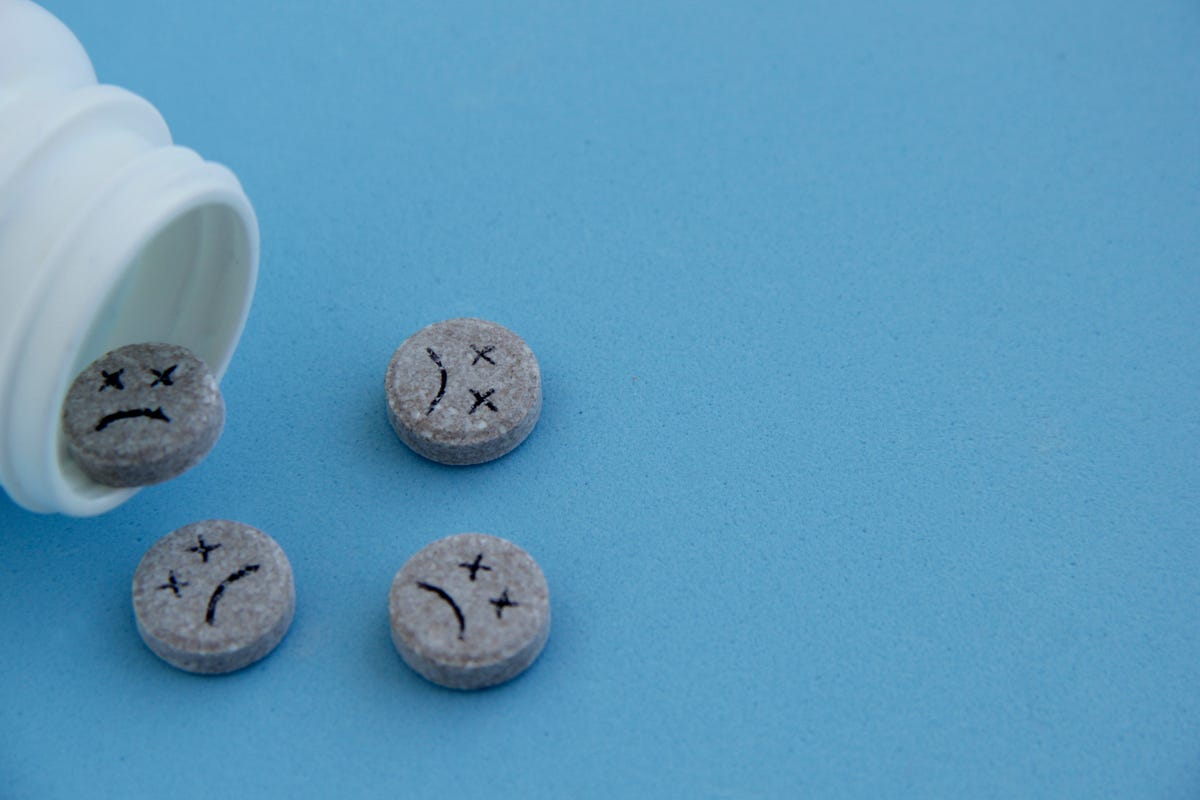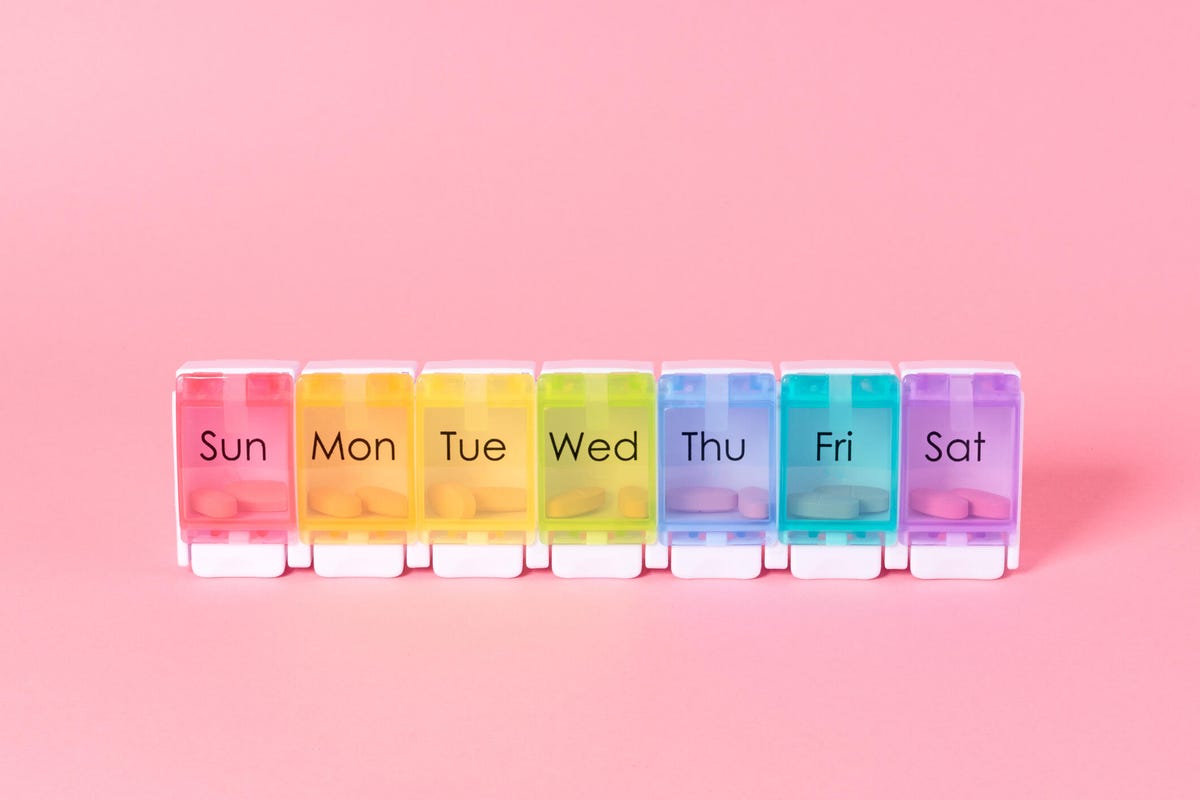
Ever taken your daily vitamins and looked at the date written on the bottle and realized they were expired? If you have ever wondered if that's a problem, we're here with an answer for you. Most vitamin and supplement bottles will have "best by" dates written on them, but what does that actually mean? Is it bad to take vitamins after that date? It turns out, vitamins don't expire, but that doesn't mean you should just ignore those dates on the bottles.
Here's everything you need to know about vitamin expiration dates and their efficacy as that date comes and goes.
Do vitamins expire?
Your vitamin bottles most likely have a date on them, but that's not technically an expiration date. That's because your vitamins don't expire in the way that you may think. Because vitamins don't become unsafe when they "expire," the Food and Drug Administration doesn't even require a date to be put on the bottles -- most manufacturers still do, though, because there is a point when vitamins lose potency. This just means your vitamins and minerals aren't giving you the full nutritional value you expect if they're past their shelf life.
Depending on your vitamins and supplements and what form they're in, they lose potency at different rates. Tablets and capsules tend to stay potent for longer than something like a chewable gummy vitamin.
The best way to store your vitamins is in a cool, dry place. Two of the worst places -- and two of the most common -- are in the bathroom and the kitchen. Both of these rooms run warm and damp, which can make your vitamins break down faster. Putting your vitamins in a closet, or in a spot in your bedroom that's not getting direct sunlight, can help prolong their potency.
How expired is 'too expired'?

Though vitamins won't expire and become unsafe, they will lose potency, which means they're not doing you any good. Manufacturers put the dates on the bottle that signify when the vitamins hit that point, so if you're past the "best by" date on a bottle, go ahead and toss them, because, while they won't make you sick, they also won't add any value.
Though it's not common, vitamins can become moldy or smelly, especially if they're not stored properly. If your vitamins are in this condition, throw them out immediately and get a new bottle. This is a situation where your vitamins can be unsafe to consume, because of whatever contamination is happening with them.
That being said, there are currently no documented cases of "expired" vitamins becoming toxic or dangerous to people. Expired vitamins are really just a waste of time and not much else.
How to dispose of expired vitamins
After you've determined your vitamins are past the point of no return, it's important to get rid of them safely. Simply throwing them in the trash can be a risk, because children or even pets could end up getting a hold of them. And while you might be tempted to flush them down the toilet, that's not the best idea, either, because old vitamins can still potentially contaminate the water.
The FDA recommends dumping the vitamins out of the bottle and into a plastic bag and mixing them with an "undesirable substance" like coffee grounds or cat litter. Seal the mixture into the bag and put that bag into your trash.
You can also take your vitamins to a drug take-back center in your community if you have one. While these are more commonly used for prescription drugs, you can also dispose of your vitamins here so they can be handled safely.
Bottom line

While your vitamins won't technically expire, they will become useless after a period of time. Pay attention to the dates the manufacturers put on bottles so you know when your vitamins and supplements will stop working for you. As long as you're storing them properly, they will last as long as they're meant to -- and contribute to your overall health.
The information contained in this article is for educational and informational purposes only and is not intended as health or medical advice. Always consult a physician or other qualified health provider regarding any questions you may have about a medical condition or health objectives.









 Add Category
Add Category